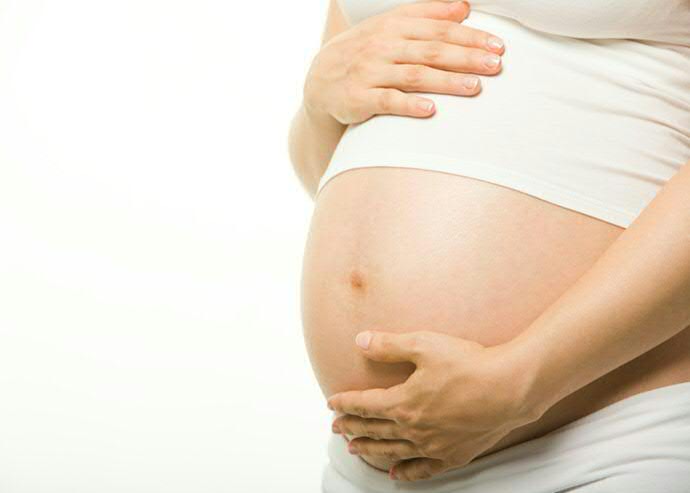Kwart van de zwangere vrouwen heeft geen optimale prenatale zorg

Een kwart van de zwangere vrouwen start niet op tijd met prenatale zorg of krijgt minder consulten in de eerstelijns verloskundige praktijk dan de verloskundige richtlijnen voorschrijven. Dit geldt vooral voor vrouwen uit niet-westerse landen, werkloze vrouwen, vrouwen met chronische ziekten of handicaps en vrouwen die geen foliumzuur slikten. Dit blijkt uit onderzoek van Esther Feijen-de Jong van het Universitair Medisch Centrum Groningen en de afdeling Midwifery Science van het VU Medisch Centrum Amsterdam. Verder blijken zwangere vrouwen vaker dan niet-zwangeren gebruik te maken van zorg van een huisarts en van alternatieve zorgverleners. Feijen-de Jong promoveert op 27 mei aan de Rijksuniversiteit Groningen.
In haar onderzoek ging Esther Feijen-de Jong het prenataal zorggebruik na van zwangere vrouwen. Zij volgde hiertoe 3070 vrouwen die hun zorgtraject startten bij de eerstelijns verloskundige. Uit haar onderzoek blijkt dat bijna een kwart van deze vrouwen (24,7 %) te weinig gebruik maakt van de mogelijke prenatale zorg die de verloskundige kan bieden. Dit komt doordat zij of te laat beginnen met de prenatale zorg of tijdens de zwangerschap minder consulten krijgen. Vrouwen uit niet Westerse landen, werkloze vrouwen, vrouwen met chronische ziekten of handicaps en vrouwen die geen foliumzuur slikten, bleken vaker te weinig preventieve prenatale zorg te gebruiken.
Specifieke interventies
De studie van Feijen-de Jong laat verder zien dat eveneens een kwart van de vrouwen tijdens de zwangerschap werd verwezen naar tweedelijns zorg. In deze groep vrouwen bleek vaker sprake te zijn van ontoereikend prenataal zorggebruik als zij een chronische ziekte of handicap hadden en als ze geen foliumzuur slikten. Volgens Feijen-de Jong kunnen deze factoren de basis vormen van specifieke interventies om juist deze groepen vrouwen eerder en vaker gebruik te laten maken van prenatale zorg.
In haar onderzoek ging Feijen-de Jong ook na in hoeverre zwangere vrouwen gebruik maken van hun huisarts via consultaties, gestelde diagnoses, geneesmiddelenvoorschriften en doorverwijzingen. Hieruit bleek dat zwangere vrouwen gemiddeld 3,6 keer contact hadden met de huisarts (telefonisch, huisbezoek, consult in de praktijk), niet-zwangeren in hetzelfde tijdsbestek 2,2 keer. De huisarts schreef bij hen minder geneesmiddelen voor dan bij niet-zwangere vrouwen. Zwangere vrouwen werden door huisartsen het meest verwezen naar verloskundige zorgverleners en niet-zwangeren naar de fysiotherapeut.
Grotere rol huisarts
De huisarts blijkt een belangrijke zorgverlener te zijn voor zwangere vrouwen. Feijen-de Jong pleit er dan ook voor om de rol van huisartsen in de verloskundige keten te versterken. Zij adviseert om de zorg in de eerstelijn te coördineren om te voorkomen dat er informatie over een zwangere verdwijnt en om te zorgen dat er niet meer interventies worden ingezet dan medisch noodzakelijk is. Feijen-de Jong: “Voorbeelden om de samenwerking tussen verloskundigen en huisartsen te verbeteren kunnen liggen in gezamenlijke huisvesting, gezamenlijke richtlijnen en een gezamenlijke digitale omgeving”.
Curriculum vitae
Drs. E.I. Feijen-de Jong (Kampen, 1972) is verloskundige en studeerde gezondheidswetenschappen aan de Universiteit van Maastricht. Zij verrichtte haar onderzoek binnen het onderzoeksinstituut SHARE van het UMCG. De titel van haar proefschrift is: ‘On the use and determinants of prenatal health care services by pregnant women’. Zij werkte tijdens haar onderzoek bij Academie Verloskunde Amsterdam Groningen (AVAG), en blijft daar na haar promotie werken als docent en senior onderzoeker.
Meer informatie: persvoorlichting UMCG, tel. (050) 361 22 00
Meer nieuws
-
26 februari 2026
Vici-beurs voor hoogleraar Neurobiologie Marieke Wermer
-
17 november 2025
Kunstmatige intelligentie in de zorg
-
04 november 2025
AI-Fabriek in Groningen zorgt voor digitale soevereiniteit
